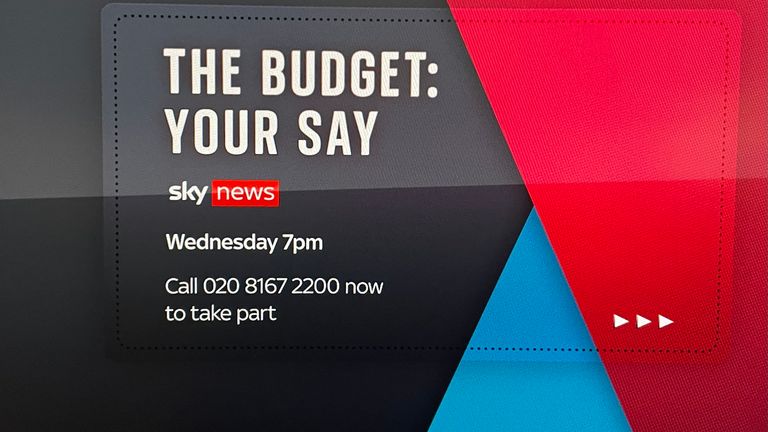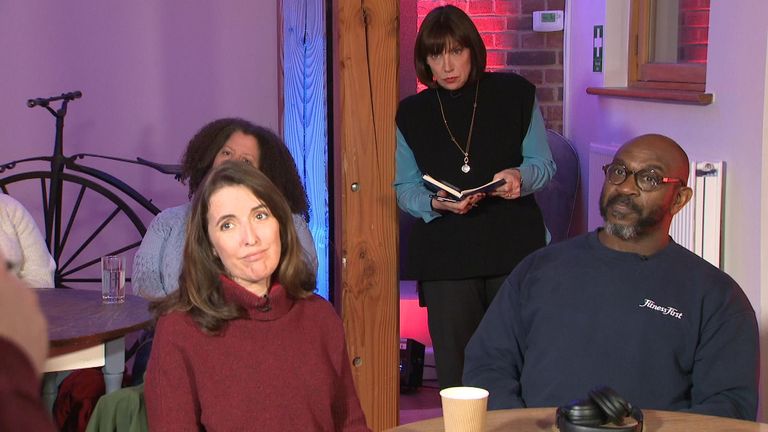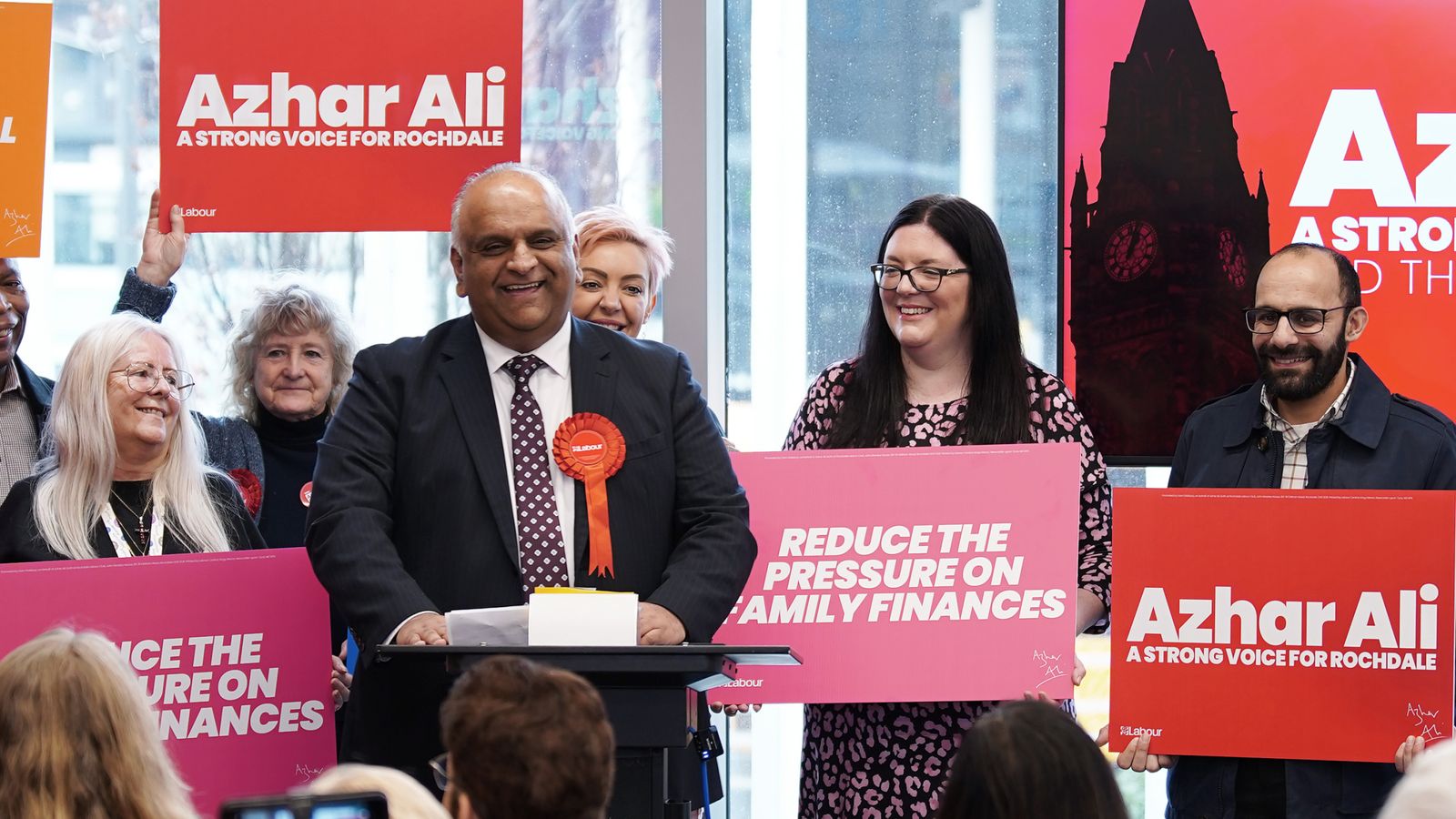The chancellor will promise to provide 30 hours of childcare a week to parents of one and two-year-olds, Sky News has learned.
The multi-billion pound announcement is set to be made in tomorrow’s Budget.
Families with children aged one and two do not currently receive support to cover the period after parental leave ends and before free nursery hours are offered for three and four-year-olds.
Politics live: Changes to childcare and pensions set to be in budget
Extending the provision could form a central plank in Jeremy Hunt’s pitch of helping with the cost of living and getting parents into work, according to Sky News’ political editor Beth Rigby.
UK childcare costs are among the most expensive in the world, with full-time fees for a child under two at nursery reaching an average of £269 a week last year – equivalent to around £14,000 annually.
Last month, the Early Years Alliance told Sky News nursery fees are expected to increase even further, going up by an average of 8% – higher than in previous years.
Responding to the expected funding boost, the organisation said that while it appears positive, “as always the devil is in the detail”.
Chief executive Neil Leitch said: “We know that the sector is facing its most challenging time in decades – settings are closing at record levels, there is a severe recruitment and retention crisis, and costs continue to soar.
“Unless the government puts in safeguards to ensure that funding for all early entitlement offers continues to meet the sharply rising costs of delivering places, not only now but in the future, what is currently a crisis will end up in catastrophe.”
Childcare has emerged as a key political battleground in the run-up to the next election, with Labour vowing to overhaul the “broken system”.
Click to subscribe to the Sky News Daily wherever you get your podcasts
Nursery providers in England have also raised concerns about underfunding, with complaints about the lack of government investment.
Currently all families of three and four-years-old qualify for 15 hours of free childcare a week, over 38 weeks, while households can qualify for 30 hours of free childcare if parents earn the equivalent of 16 hours a week at the national minimum or living wage.
Tory MPs have been pressing the chancellor to make childcare more affordable to reduce pressure on families and enable more women to re-enter the workforce.
The government is expected to pledge £4bn to expand free provision to one and two-year-olds, with details on where the money will come from to be laid out on Wednesday.
Labour MP Stella Creasy claimed that is only half of what would be needed, tweeting: “If this is true, it’s asking childcare providers to offer more hours at a loss as it’s only half the money needed to deliver this promise. (It) would be the same as (the) help to buy scheme which pushed up house prices because it didn’t increase supply.”
Paul Johnson, director of the Institute for Fiscal Studies, said that many would welcome the announcement but warned the “whole system is hugely complex”.
“As universal support has expanded, targeted support for children most in need has contracted,” he wrote.
What’s expected in Wednesday’s Budget?
Mr Hunt is expected to announce a package of measures to help parents, including changing the rules so that those on Universal Credit are given more childcare and provided with the funding upfront.
The Treasury is also believed to be planning a cash injection of hundreds of millions into increasing the availability of the 30 hours of free childcare to three to four-year-olds.
Read More:
Jeremy Hunt is set to deliver his first budget – here are the things to look out for
Plans are also being considered to loosen staff to child ratios for two-year-olds, which could make the cost of childcare a little cheaper.
However, Mr Leitch called on the government to “re-think this shameful plan”, saying: “At a time when we finally seem to be making some progress, policies that undermine the quality of care and education that children receive are the last thing we need.”
Few other “big bangs” are expected on Wednesday, with Mr Hunt likely to focus on measures to support the government’s plan to halve inflation, grow the economy and reduce public debt.
The fiscal package comes in the wake of the autumn statement last November, which saw the chancellor hike taxes as he and Prime Minister Rishi Sunak sought to restore UK financial credibility after Liz Truss’ short-lived premiership.
Government insiders said there will be two parts to the Budget: a short-term support plan to provide immediate relief on the cost of living crisis and then the long-term plan for growth.
On the cost of living, Mr Hunt is expected to cancel the planned £500 hike in the government’s ceiling for energy bill support which was due to come into force next month.
However he is not expected to offer voters any cuts to personal taxes.
Efforts to encourage the over-50s, the long-term sick and disabled, and benefits claimants back into the workplace are likely to form a key plank of the budget, while the chancellor is also said to be mulling over changes to pensions to entice early retirees back to work.







